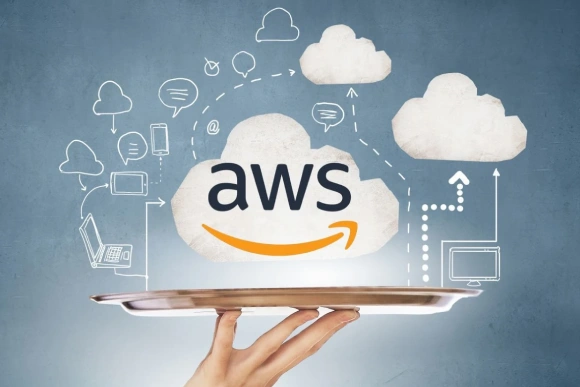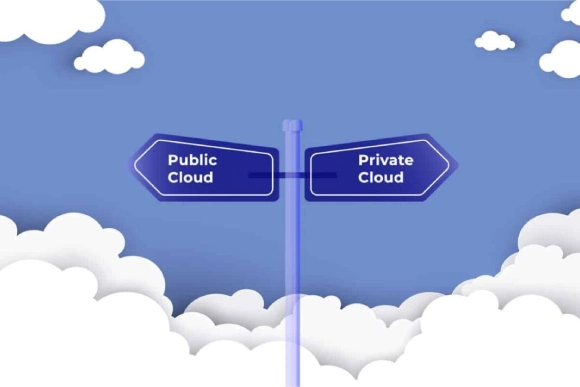Cloud computing is no longer just a tech trend—it’s the backbone of digital transformation in 2025. But why is cloud computing so critical to modern businesses?
The global cloud computing market is projected to reach $832.1 billion by 2025, growing at a compound annual growth rate (CAGR) of 17.5% from 2020.
What is cloud computing, and why is it crucial for businesses today? Cloud computing provides access to servers, storage, and software over the internet, eliminating the need for physical infrastructure.
Why is Cloud Computing Essential for Digital Transformation?
Cloud computing is revolutionizing the way businesses operate, but why is it so essential? With cloud computing, businesses can scale operations, enhance flexibility, and reduce costs.
As Albert Einstein once said, “In the middle of difficulty lies opportunity.” Cloud computing opens up new possibilities for innovation and growth.
Why Should You Care About Cloud Computing?
Cloud computing lets businesses and individuals tap into powerful computing resources—like storage, apps, and processing power—via the internet, removing the need for expensive physical infrastructure. How does this benefit businesses? It drives quick scaling, cost savings, and seamless collaboration, empowering businesses to grow and innovate faster.
In 2025, the U.S. cloud computing market is projected to reach $723 billion, underscoring its critical role in digital transformation.
As Steve Jobs once said, “Innovation distinguishes between a leader and a follower.” Embracing cloud computing positions businesses to lead in innovation and stay competitive in today’s fast-paced digital landscape.
What are the Benefits of Cloud Computing for Businesses?
Why should businesses embrace cloud computing? Here’s why it’s a game-changer:
- Seamless Scalability: The cloud allows businesses to scale effortlessly without overburdening infrastructure, whether expanding to new markets or launching products.
- Cost Savings: Only pay for the resources you use, eliminating the need for expensive hardware and reducing operational costs.
- Enhanced Remote Collaboration: Empower your teams to collaborate in real-time from anywhere, improving productivity while maintaining security.
- Robust Security & Compliance: Cloud services come with advanced security measures that protect sensitive data and ensure regulatory compliance.
- Accelerated Innovation: Leverage emerging technologies like AI and machine learning with minimal upfront costs, driving innovation faster.
By integrating cloud computing, businesses can achieve faster growth, improved efficiency, and secure, scalable solutions for the future. Cloud computing is revolutionizing industries by enabling innovation, reducing costs, and fostering agility, paving the way for transformative changes in how businesses operate and compete.
How Has Cloud Computing Changed the Way We Do Business?
Cloud infrastructure enables businesses to scale efficiently, reducing reliance on physical hardware. Technologies like virtualization and containerization optimize resources and enhance operational efficiency.
In the U.S., cloud infrastructure spending is projected to reach $211.9 billion in 2025, highlighting its critical role in digital transformation.
Here’s how cloud computing has reshaped business operations:
| Aspect | Impact of Cloud Computing |
|---|---|
| Collaboration | Real-time, remote team collaboration. |
| Customer Experience | Seamless, personalized services across devices. |
| Cost Efficiency | Reduced hardware and IT costs. |
| Innovation | Faster product development and deployment. |
| Agility | Quick scaling and flexibility to adapt. |
Key Types of Cloud Computing
Cloud computing is not a one-size-fits-all solution. It offers various deployment models, each catering to different business needs. Let’s explore the most common types of cloud computing and how they’re shaping the future of business operations.
What is Hybrid Cloud Computing?
Hybrid cloud computing combines the public cloud’s flexibility with the private cloud’s security and control. It allows businesses to scale efficiently while protecting sensitive data.
According to a report by IMARC Group, the U.S. hybrid cloud market was valued at $39.9 billion in 2023 and is projected to reach $157.7 billion by 2032, growing at a compound annual growth rate (CAGR) of 16.5% during 2024-2032.
This significant growth underscores the increasing adoption of hybrid cloud solutions across various industries. As cloud computing continues to evolve, it is becoming a cornerstone of modern education, particularly in computer school training programs, where it equips students with the skills needed to drive innovation and meet the demands of a rapidly changing digital landscape.
Here are the key benefits:
| Benefit | Why It Matters |
|---|---|
| Flexibility | Scale resources as needed, blending public and private clouds. |
| Cost Efficiency | Optimize costs by using the public cloud for non-sensitive tasks. |
| Security | Keep critical data secure in the private cloud while leveraging the public cloud for scalability. |
| Agility | Quickly adapt to market changes with the ability to use both cloud models for diverse needs. |
What is Google Cloud Computing?
What makes Google Cloud Computing essential for businesses? With high-performance computing, machine learning, and analytics, it enables faster decision-making and innovation. Its secure, scalable infrastructure helps businesses streamline operations, boost collaboration, and unlock growth—making it a powerful tool for staying ahead in the digital world.
Why is Google Cloud a top choice? It provides reliable performance, security with built-in compliance, and cost-effective scalability—essential factors for modern businesses. For more on how Google Cloud is shaping industries, check out our blog on QA Google Cloud Certification.
Private vs. Public Cloud
When deciding between private cloud computing and public cloud computing, it’s important to understand their key differences and when to use each.
| Aspect | Private Cloud | Public Cloud |
|---|---|---|
| Control | Full control over the infrastructure and security. | Managed by third-party providers, less control over infrastructure. |
| Security | More secure, ideal for sensitive data, and has strict regulations. | Security is managed by the provider, but more shared resources. |
| Cost | Higher initial investment for infrastructure and maintenance. | Lower initial cost, pay-as-you-go model. |
| Scalability | Limited scalability based on available resources. | Highly scalable, pay for what you use. |
| Flexibility | Less flexible, as it’s designed for specific needs. | Highly flexible and suitable for a variety of workloads. |
| Compliance | Easier to meet compliance standards due to control over data. | It may require additional security measures for compliance. |
Learn More about the advantages of each model and how to decide which one is best for your business by exploring our full guide on Private Cloud vs Public Cloud.
The Power of Cloud in Digital Business Transformation
Cloud computing is revolutionizing business operations, enabling companies to scale rapidly and innovate without heavy upfront investments. By 2025, global spending on cloud computing services is projected to reach $832.88 billion, reflecting a 13.2% increase from the previous year. This surge underscores the critical role of cloud solutions in modernizing business processes and driving digital transformation.
Scalability and Cost Efficiency with Cloud
How can cloud solutions help businesses scale without breaking the bank? Cloud computing offers flexibility and cost-efficiency by allowing businesses to:
- Scale operations quickly based on demand.
- Avoid heavy upfront infrastructure costs.
- Pay only for the resources they use, reducing unnecessary expenses.
- Increase efficiency by streamlining IT management.
- Reduce the risk of overprovisioning or underutilization with dynamic resource allocation.
This makes cloud computing an ideal solution for growing businesses looking to stay agile and efficient.
Enhancing Collaboration and Remote Work
How has cloud computing made remote work more efficient? Cloud-based tools enable teams to:
- Access data and collaborate in real-time, anywhere.
- Stay connected seamlessly across different locations.
- Boost productivity by eliminating the need for on-premise infrastructure.
- Improve communication through cloud-based messaging and video conferencing tools.
- Facilitate easy file-sharing and document collaboration without email attachments.
By leveraging cloud solutions, businesses can create a more flexible, collaborative, and responsive work environment.
What are IaaS, PaaS, and SaaS in Cloud Computing?
| Model | What It Does | Benefit |
|---|---|---|
| IaaS (Infrastructure as a Service) | Virtualized computing resources like storage and servers. | Reduces hardware costs and offers flexibility. |
| PaaS (Platform as a Service) | Tools for building and deploying applications. | Accelerates development and deployment. |
| SaaS (Software as a Service) | Software applications delivered over the internet. | Access on-demand without installation hassles. |
How Cloud Infrastructure Supports Digital Business
Cloud infrastructure powers the cloud computing ecosystem, allowing businesses to scale without worrying about on-premise hardware. Key technologies, such as virtualization and containerization, enable businesses to optimize their resources and improve efficiency.
Here’s how cloud infrastructure supports digital business:
- Scalability: Easily scale resources up or down based on demand without costly physical infrastructure.
- Flexibility: Quickly adapt to market changes with agile cloud solutions.
- Cost Efficiency: Save on hardware and maintenance costs by using cloud resources on demand.
- High Availability: Cloud infrastructure ensures that data and services are always accessible, even during outages.
- Security: Built-in security features protect sensitive data and maintain compliance with industry regulations.
With cloud infrastructure, businesses can enhance agility, reduce costs, and foster innovation, driving the digital transformation process forward.
What Are the Career Opportunities in Cloud Computing?
How can cloud computing shape your career? With roles like cloud architects, cloud security analysts, and specialists in IaaS, PaaS, and SaaS, cloud computing offers diverse and lucrative opportunities across industries.
As Albert Einstein said, “The only source of knowledge is experience.”
High-Demand Jobs in Cloud Computing
What are the most lucrative careers in cloud computing? Positions such as cloud architects, cloud engineers, and cloud security specialists are in high demand, offering exceptional salaries and long-term growth. As businesses shift to cloud services, professionals with these skills are increasingly sought after for their expertise.
Learn more about Cloud and Cybersecurity Jobs Are Top Paying.
Cloud Computing Certification Training
Why is cloud computing certification crucial for your career? Pursuing cloud computing certification training not only enhances your skills but also gives you a competitive edge in the job market. With certifications in IaaS, PaaS, or SaaS, you’ll be prepared to meet the growing demand for cloud professionals.
Learn more about our Cloud Computing Training programs!
What Are the Challenges of Adopting Cloud Computing?
What obstacles do businesses face when adopting cloud computing? In the U.S., security and compliance are the top challenges, with 80% of financial institutions citing them as primary concerns. 46% of companies encounter difficulties integrating legacy systems with cloud platforms.
These challenges can hinder the seamless transition to cloud services.
Security Risks of Cloud Computing and How to Mitigate Them
Cloud computing comes with security risks, such as data breaches, unauthorized access, and data loss. To mitigate these risks, businesses should:
- Use encryption to protect sensitive data.
- Implement multi-factor authentication (MFA).
- Regularly update security protocols and train employees on best practices.
How Can You Overcome Cloud Adoption Barriers?
What are the key barriers to cloud adoption, and how can you overcome them? Common challenges include resistance to change and lack of skills.
| Barrier | Solution |
|---|---|
| Resistance to Change | Educate stakeholders on cloud benefits and success stories. |
| Lack of Skills | Invest in cloud training programs to upskill your team. |
Why CCI’s Cloud Computing Training is the Right Choice for You
As a career education institute, CCI Training Center offers a comprehensive cloud computing program that combines both theoretical knowledge and practical experience. The program is designed to equip students with the skills needed to thrive in the fast-paced cloud industry, whether they are just starting out or looking to upgrade their existing expertise. Here’s how they ensure your success:
- Expert-led instruction combined with hands-on labs.
- Practical skills for real-world challenges.
- Certification preparation to boost your career.
- Tailored learning for both beginners and those looking to enhance existing skills.
Hands-on Training for Real-World Skills
The program emphasizes hands-on experience to prepare individuals for real-world cloud computing challenges. It provides opportunities to practice on actual cloud platforms, equipping participants with the practical skills required to thrive in the industry. Here’s how the hands-on training is structured:
| Skill Area | What You Learn | Benefit |
|---|---|---|
| Cloud System Configuration | Setting up, configuring, and managing cloud environments. | Gain experience managing cloud platforms. |
| Cloud Troubleshooting | Identifying and solving cloud computing issues. | Learn how to resolve real-world cloud problems. |
| Cloud Platform Usage | Working with popular platforms like AWS, Azure, and Google Cloud. | Build familiarity with industry-leading tools. |
Start Your Cloud Computing Career with CCI
As a career education institute, CCI Training Center prepares students for successful careers in cloud computing by equipping them with job-ready skills and industry-recognized certifications. With hands-on labs and expert-led instruction, the program provides everything needed to excel in the field. Here’s how they set students up for success:
| Career-Boosting Expertise | Skills You Build | Job Market Impact |
|---|---|---|
| Cloud Infrastructure Design | Creating, deploying, and managing cloud systems. | Prepares you for roles like Cloud Architect or Engineer. |
| Cybersecurity in the Cloud | Securing cloud infrastructure and sensitive data. | Opens doors to high-demand cloud security roles. |
| Proficiency in Cloud Platforms | Mastering AWS, Azure, and Google Cloud services. | Makes you a competitive candidate in top tech industries. |
Frequently Asked Questions (FAQs)
1. What Is Cloud Computing?
Cloud computing provides on-demand access to servers, storage, and software over the internet. It allows businesses and individuals to scale without the need for costly physical infrastructure.
2. How Can I Start Learning Cloud Computing?
Begin with foundational courses in networking, operating systems, and cloud fundamentals. Explore online platforms like Udemy, Coursera, or CCI’s Cloud Computing Training for structured learning.
3. What Are the Career Opportunities in Cloud Computing?
Cloud computing offers diverse roles like cloud architect, cloud security analyst, cloud engineer, and cloud consultant. These positions are in high demand across industries, offering competitive salaries.
4. Do I Need a Degree to Work in Cloud Computing?
While a degree helps, it’s not mandatory. Certifications like AWS, Google Cloud, and Azure certifications can significantly enhance job prospects and provide practical knowledge in cloud technologies.
5. How Long Does It Take to Learn Cloud Computing?
The learning timeline depends on your commitment and background. With focused study, you can grasp cloud fundamentals in a few months and gain industry-recognized certifications within 6-12 months.
6. Why Is There a Shortage of Cloud Computing Experts?
There is an ongoing shortage of qualified cloud computing professionals as companies are increasingly adopting cloud technologies. The demand is growing, but the available talent pool isn’t keeping pace.













